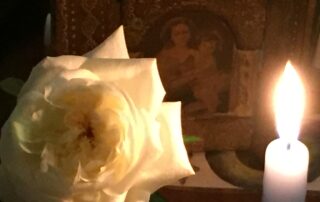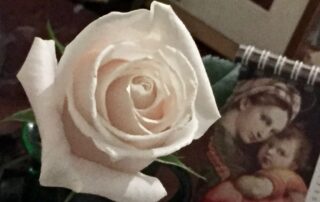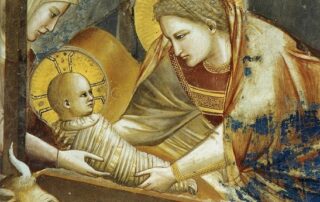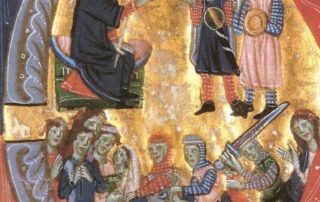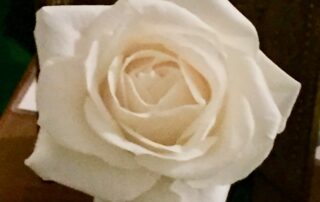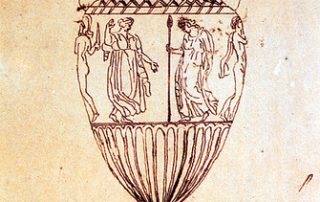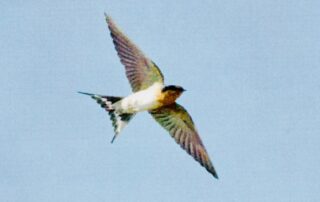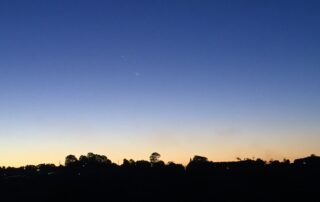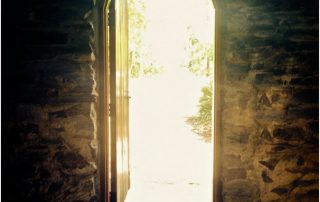![]()
“As poets and as readers we are both the users and the transmitters of this lexicon. Today we need to keep adding not subtracting meaning, remembering not forgetting, to connect ourselves to the chain that ultimately joins all cultures.”
Sophia Nugent-Siegal
Welcome to Lexicon
 Wittgenstein famously concluded his Tractatus with the memorable comment: “Whereof we cannot speak, thereof we must remain silent”.
Wittgenstein famously concluded his Tractatus with the memorable comment: “Whereof we cannot speak, thereof we must remain silent”.
Unlike Ludwig, Sophia, in whose memory this site is maintained, did not accept “remaining silent” as a viable intellectual option—not because she thought ultimate meaning any more expressible than did Wittgenstein, but because she thought the battle was necessary.
Heroic, doomed to failure, absolutely essential.
Flotsam and Jetsam
Flotsam and Jetsam UK poetry journal, Shearsman, has published another suite of poems (a sequence of eight individual poems), Flotsam and Jetsam, by Sophia in its Spring edition (Shearsman: Vols. 139 & 140). Given the formative years she had spent in England as a child, Sophia would be pleased, both as poet and historian, by the further underlining of this connection. There is a particular poignancy to Flotsam and Jetsam. Not only does it represent the work with which Sophia signed off on the collection, Rough Sleepers, which had been written through all the difficulty and upheaval of the preceding
To Be…
To Be… An elegy by Gershon Maller, dedicated to Sophia, was recently selected for competition in the ACU Poetry Prize. The poem has now been published in the 2023 anthology, Love. In linguistics and logic, the principal copula verb (connecting subject and predicate) is, in English, the verb “to be.” I am. You are. She is. Such a little word, is, the full meaning of which is only truly apparent to us when we must live the absence of it, when we must live with loss. (there is) (no word) (for love) How do we speak of it? How do we
No Coward Soul
No Coward Soul Ten years ago, ten years ago today, the machines in the ICU were turned off and Sophia died. In That Sleep… Bury me in my carapace of stone Like a molten Eleanor Without half a face Bury me in garlands Of burning paper With all my pollen sparks of steel Bury me in my mâché wings Folded into ribs of bone Netted into needles The firmament is the skin of a broken statue And the lungs of the earth are sacrificial flowers Yet no soul is pinioned in hollow bone By Sophia Nugent-Siegal So I did bury
God with us
God with us Behold, a virgin shall be with child, and shall bring forth a son, and they shall call his name Emmanuel, which being interpreted is, God with us. Matthew 1:23 Every year, in churches across the world, Christian priests and pastors give sermons about the “true meaning of Christmas.” Love will be mentioned, the act of giving will figure prominently, the familiar story of the Nativity told in all its beautiful simplicity… We’ve heard it all before, which means that, all too often, we do not hear it at all. It is certainly true that the themes of
The Turn of the World
The Turn of the World Each week I read poetry beside Sophia’s tomb, some by other poets, some by Sophia herself. Recently I have been reading a poem each week from the series Sophia wrote as a 16-year-old after visiting an exhibition of illuminated manuscripts, The Medieval Imagination. In a moment of Jungian synchronicity, the next poem in the sequence to be read a week ago was painfuly relevant to the wider world. It was The Massacre of the Innocents. Reading it stung. In Christ’s Nativity story, Herod, the king of Judea, was told by the Magi (the Three Wise
Tuesday’s child is full of grace
Tuesday’s child is full of grace You were born on a Tuesday. It was a Tuesday on your last birthday in this world. (How strange yet precise are the patterns of a life.) You were 22. Ten years have passed since that last birthday. You are still 22. Your sweet face looks out at us in the lovely photographs your Auntie Kaye took that day—“dear little Sophie” as one of the doctors treating you at the hospital used to say. It is your birthday today. You are 22. Your death was, and is, shocking, but it is the present tense
There is a burning in the garden…
There is a burning in the garden… Two of Sophia’s poems were printed in the journal of creative and spiritual exploration, Jesus the Imagination, published by the US Center for Sophiological Studies, Angelico Press (Vol Vl: MMXXll, pp 92-93). Sophiology is premised on the idea of divine wisdom. Usually conceptualised in female terms, divine wisdom has links to the concept in Jewish mysticism of the Shekhinah or dwelling place. In a sense, to search for wisdom is to make in oneself, and of oneself, an interior space for experience of the divine. I The first of the poems is concerned with the
The Lovely Haunting
The Lovely Haunting Last year some of Sophia’s poems from Rough Sleepers, the collection written in her last year of life, were submitted to two journals—two very different types of journals, with very different readerships (chosen quite deliberately). Both accepted her poems. As the work has now been published and the journals distributed, Sophia’s poems can also be placed here, on Lexicon. A sequence of three poems, The Torments, has been published in one of the UK’s most innovative poetry magazines, Shearsman (in the Spring 2023 edition, Vols. 135 & 136, pp 11-13). Thought-provoking and exploratory, Shearsman features original voices and profound
Seeing, Being…
Seeing, Being… Like Alice’s bluebell, though not surprised into view, Sophia’s soul is visible in this photograph. Seeing and being… Sophia thought a great deal about being. In Rough Sleepers, her last collection, the nature of human consciousness—what it is to be a thinking, sensate yet spiritual being—is a central theme. One of the poems from a longer sequence, A Hot Summer, written in response to the death of her father (a year after his death and a year before her own), is concerned with the concept of consciousness. It begins, as in Alice’s Cyanometer, with the experience of colour—for,
The Gift of Seeing
The Gift of Seeing “A book should be like an axe for the frozen sea within us,” Franz Kafka memorably said. One can argue with Kafka about the extremity of his imagery (he writes, in the same letter, of books wounding or stabbing us!), but he is right about the capacity of a creative work to make us open to understanding, to make us truly see. It is the gift of seeing that Alice Oswald has given us in the two poems she has written for Sophia’s Notebook—and what a gift it is! In both Cyanometer and Hymn for Winged

